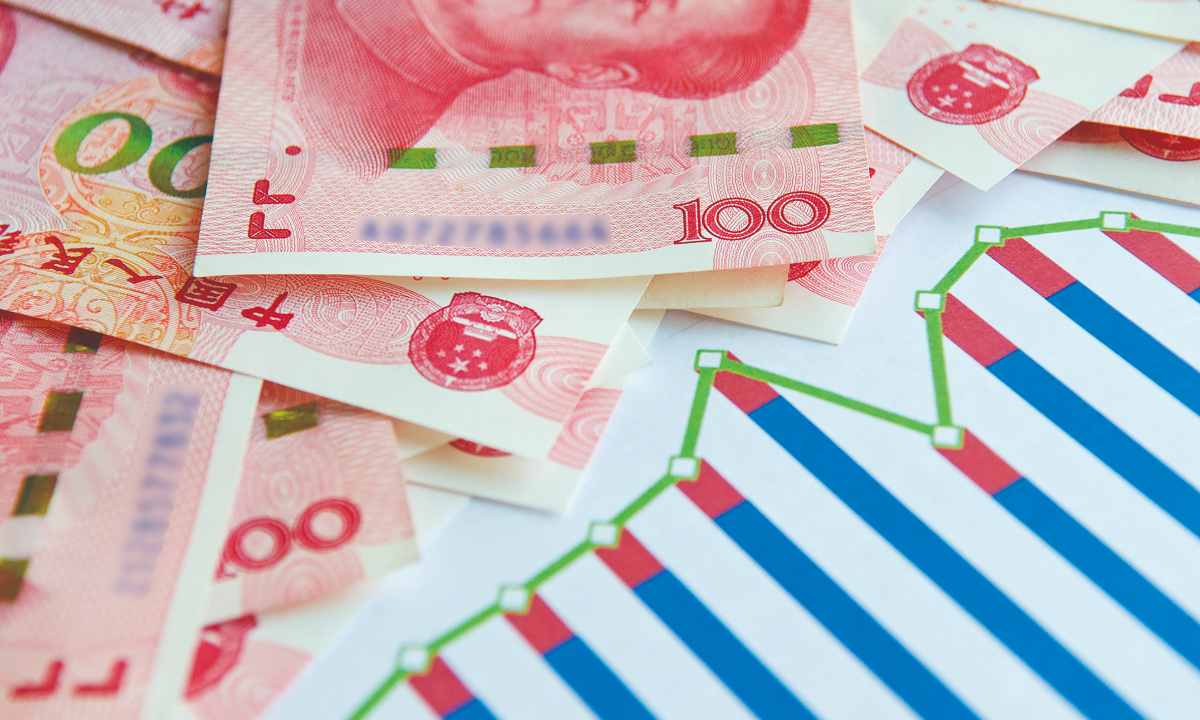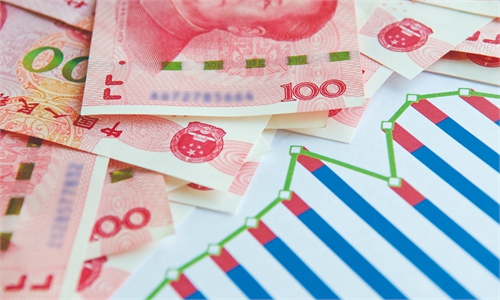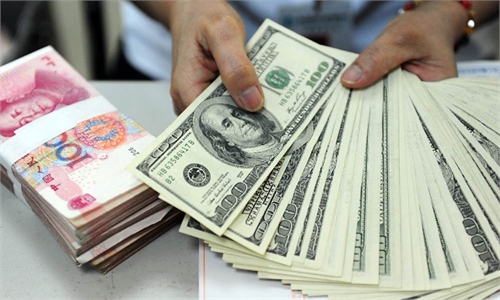
The offshore yuan exchange rate falls below 6.73 intraday, while the onshore yuan exchange rate depreciates by more than 500 points intraday on May 6, 2022. Photo: IC
Depreciation pressure on China's yuan has intensified as concerns grow over capital outflows and a potential economic slowdown. The yuan central parity rate stood at 6.63 to the US dollar on Friday, depreciating from 6.37 on April 19, which means a loss of more than 2000 basis points in less than a month.
The market suffered more bad news over the weekend as official data showed China's foreign exchange reserves hit $3.1197 trillion by the end of April, down $68.3 billion, or 2.14 percent, from the end of March. The figures added to concerns that a slew of pandemic control measures rolled out since the end of March may have further deteriorated the financial health. As capital outflows weighed on the yuan after its recent devaluation, the drop in China's foreign exchange reserves attracted significant public attention.
However, there is no need to read too much into the figures for April. Firstly, the decline in reserves does not mean the foreign exchange market is facing a critical supply constraint. Wang Chunying, deputy head of the State Administration of Foreign Exchange (SAFE), said recently that supply and demand in the market has been basically balanced. Secondly, the drop in reserves does not equal capital outflow. Data from SAFE showed China continued to see cross-border capital net inflows in April.
The decline in reserves is the result of multiple reasons such as the rise of the US dollar Index and changes in global financial asset prices. The drop remains within normal range and there is no real basis for saying it is a result of government intervention in the foreign exchange market. China's yuan may continue on a downward trend due to the surge in the dollar index, but depreciation expectation is not strong enough so that the central bank has to intervene in the foreign exchange market by selling US dollar-denominated assets to shore up the yuan rate.
How far will China's yuan depreciate? It is still too early to draw firm conclusions, but investors need not be overly pessimistic because of some bad news like foreign exchange reserves decline.
As some US dollar-denominated assets jumped on news of a further Fed rate hike, it will be reasonable if the yuan is allowed to further depreciate against the US dollar, as the depreciation is a result of automatic corrections under the impact of market supply and demand. However, a free fall is unlikely. China has the ability to keep its currency stable. Although there are growing concerns over the economic impact of the strict zero-COVID policy, the Chinese economy has still been developing at a steady pace.
The author is a reporter with the Global Times. bizopinion@globaltimes.com.cn



